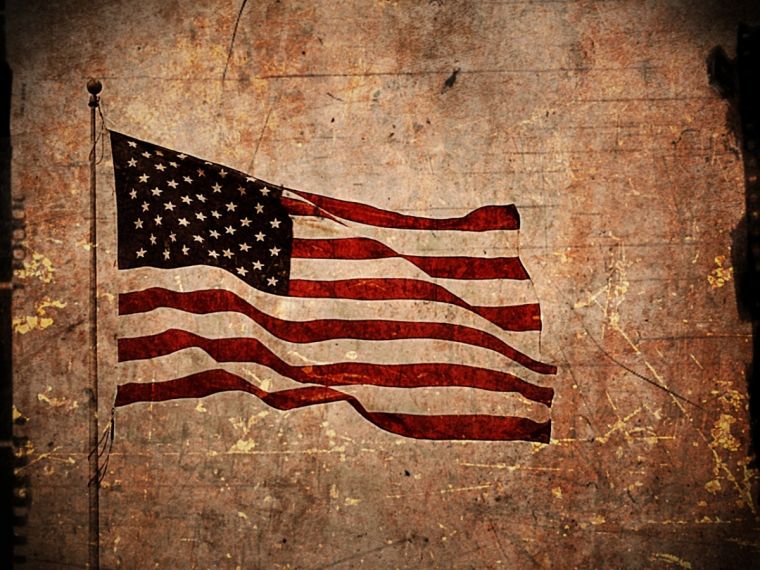Has The 2016 Election Sounded The Death Knell Of The Religious Right?

Even though at times it seemed like it was going to last forever, the 2016 presidential election is almost over. Tomorrow we'll find out who will be President of the US until 2021.
What has the campaign meant for one of the largest voting blocs in American politics, the Religious Right? It's a question which will affect the Church and the whole country in the next electoral cycle, and indeed the next generation.
First, a quick re-cap. The Religious Right was founded in the 1970s in opposition to the legalisation of abortion and the Equal Rights Amendment, and attempts to keep tax exempt status for some segregated private Christian education institutions. Beginning with evangelicals, the movement began to encompass Pentecostals and eventually conservative Roman Catholics.
Through the 80s the Moral Majority and the Christian Coalition (along with myriad other networks) gained members, notoriety, and eventually a seat at the mainstream political table. The major figures of the Religious Right became household names. Jerry Falwell was first to capture the imagination, then Pat Robertson, who even ran for President. James Dobson became a significant figure through his Focus on the Family group in the 90s. But despite increased prominence, the Religious Right never made significant headway on its agenda. Both Republican and Democratic Presidents and Congresses ignored its political clout when in office, even though Republicans courted the vote heavily.
Even George W Bush – mocked in the UK and liberal America for his simplicity, and his faith – didn't really advance the cause of the Religious Right. In two Bush terms and two Obama terms, the end seemed nigh for the once mighty political organising ability of the Religious Right.
And then there was Donald Trump.
While his opponents floundered and desperately hoped 'values voters' would come to their aid, Trump gathered in enough primary votes to become the GOP's nominee. Ted Cruz and Marco Rubio – committed Christians both – had reason to feel aggrieved that Trump had triumphed. But triumphed he had. So the Religious Right had a decision to make. Would it support Trump, a man who had never asked for forgiveness, had business interests in strip clubs, casinos and the rest, and who couldn't even recite a verse of the Bible when pressed.
Religious conservatives responded in one of three ways. They either repudiated Trump and stood as far away from him as possible, they accepted him as a compromised candidate or they actively went out to stump for him.
The first group is the one which comes out with most credit. Russell Moore was its leading light. Conservative theologically, the president of the Ethics & Religious Liberty Commission of the Southern Baptist Convention had a nuanced approach to political engagement which won him admirers across the Church. Having worked for a Democratic congressman (Gene Taylor, who's now a Republican), Moore's opposition to Trump could have been dismissed as partisanship. But he backed it up with meticulous, orthodox, theological critique. On one occasion, he excoriated Trump for his campaign's "reality television moral sewage". Moore was joined by his fellow Southern Baptist leader Dr Albert Mohler, and all of a sudden, the largest Protestant denomination's two most significant figures were actively in opposition to the Republican nominee – it was unprecedented.
When the lurid details of a video featuring Trump boasting about assaulting women came out, others, such as Beth Moore (no relation) spoke out. A moral opposition to Trump was born – which was boosted by some leaders in black majority churches, who had opposed Trump from early on. A group of evangelicals then voiced their opposition to Trump as election day approached.
The second group – allegedly reluctant Trump supporters – were typified by Wayne Grudem. The ultra-conservative theologian initially gave Trump his support, before pulling it in the wake of the video controversy. Finally, Grudem performed another 180 and began justifying support for Trump once again. "Americans are making a choice between... two very different views of government," said Grudem, "One of them is much more consistent with biblical teachings than the other."
Grudem's support was echoed by the likes of Franklin Graham – the influential inheritor of his father Billy's mantle.
The final group – enthusiastic Trumpistas – were a rehash of hangovers from the original Religious Right, their progeny, and others along for the ride. Pat Robertson, now in his 80s and pedalling increasingly eccentric theories about the world was firmly in the Trump camp. Jerry Falwell Jr – the inheritor of his father's university, Liberty – became Trump's number one evangelical cheerleader. At one point he suggested, improbably, that the GOP was involved in releasing the video comments to scupper Trump, "I think a lot of the establishment Republicans have been conspiring together for the last six weeks or more, and I think it's all a plan." Trump's evangelical council included megachurch pastor Jentezen Franklin, televangelist Paula White, and he even received vocal support from Eric Metaxas – author of a book about Dietrich Bonheffer.
Tomorrow it will be clear where the future of the Religious Right stands, but it must be with the conservative Christians who opposed Trump – chief among them Moore – who are capable of reshaping evangelical political engagement. In Moore's own words, "Finding new ways of engaging our fellow citizens and forming collaborative majorities for public action are now the urgent priority of evangelicals who wish not to concede the public space, in our name, to heretics and hucksters and influence-peddlers. The gospel matters more."
Follow Andy Walton on Twitter @waltonandy











